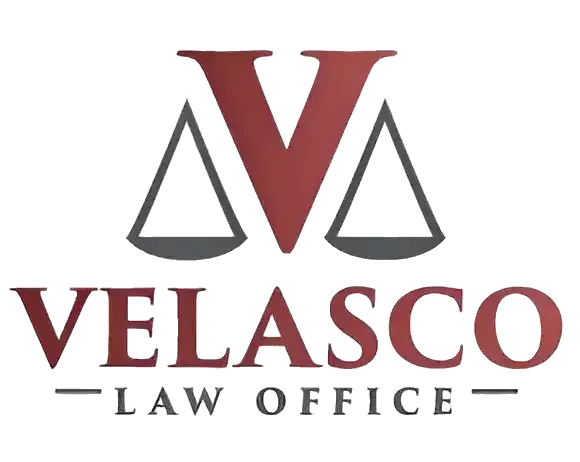Everything You Need to Know About Filing for Bankruptcy in New Jersey
For many people, there are few words more intimidating than “bankruptcy,” however, the Velasco Law Office is here to assure you that with a bit of self-education and an experienced Edison, New Jersey bankruptcy attorney on your side, it does not have to be. Attorney Velasco understands that you have a lot on the line, and that filing for bankruptcy is a major life decision. However, most often, those who file with an attorney they can trust feel a weight lifted off their shoulders, as they can now finally move on with their lives. To start you off, we’ve compiled a guide containing virtually everything you will ever need to know about bankruptcy to hopefully shed some light on the subject and allow you to feel far more confident before you ever even speak with our knowledgeable firm. So, if you are someone who would like to learn more about filing for bankruptcy in the state of New Jersey, please continue reading and contact our firm today.
Business Bankruptcy
To start, we’d like to say that very many businesses file for bankruptcy. This does not make you unsuccessful, and it also does not necessarily mean that you will have to close up shop and give up your dream of owning a business. This alone provides many hard-working business owners with a huge sigh of relief. There are two primary types of business bankruptcy: Chapter 7 and Chapter 11, and each is designed for different circumstances.
Chapter 7 Business Bankruptcy
In Chapter 7 bankruptcy, also referred to as liquidation bankruptcy, you will liquidate your business to pay as much of your debt as you can. Chapter 7 business bankruptcy is ideal for business owners whose debt surpasses their business’s assets, whose business has very little, or even no potential for profit, or when debt restructuring is impossible. Fortunately for many business owners, when the filing is successful, they can effectively walk away from any remaining unsecured debt they have. That being said, the obvious downside of a Chapter 7 bankruptcy is that generally, your business will close in the end.
The Chapter 7 business bankruptcy process is as follows:
1) File a petition with the bankruptcy court.
2) Provide the court with a financial statement, as well as documents detailing your business’s assets, liabilities, executory contracts and leases, and current income and expenditures.
3) Provide the bankruptcy trustee your tax returns from last year, as well as potentially all other years spanning the duration of your case, and sometimes even farther back than that.
4) As soon as you file, an automatic stay goes into effect, preventing all collection activities (more on the automatic stay later).
5) After a few weeks, you will attend the Meeting of Creditors (also known as a 341 meeting). This is where you, your attorney, the bankruptcy trustee, and any creditors will meet so the creditors and trustee can ask certain questions to better understand your business’s financial affairs, functionality, and property. From here, the trustee will decide whether Chapter 7 bankruptcy is the appropriate course of action.
6) Finally, as long as all goes as planned, your business will be liquidated, your business’s assets will be sold to pay your creditors, and all remaining unsecured debt will be discharged, or eliminated.
Chapter 11 Business Bankruptcy
Chapter 11 business bankruptcy, on the other hand, is ideal for businesses that are capable of restructuring their debt. In a nutshell, if you file for Chapter 11 bankruptcy, your business can continue operations, continue receiving income, and keep its employees working. This debt restructuring occurs in a 5-year plan under the Bankruptcy Court’s protection. Not unlike other forms of bankruptcy, Chapter 11 business bankruptcy halts all collection activities from creditors, vendors, and banks. In many cases, by filing Chapter 11 bankruptcy, your business can even retain its line of credit. The ultimate goal of filing Chapter 11 bankruptcy is to increase your net flow and keep your business fully operating, eventually becoming profitable once again.
The Chapter 11 business bankruptcy process is as follows:
1) You and your attorney will file a bankruptcy petition, which includes a financial statement, a list of your business’s assets, as well as liabilities, and a statement regarding any outstanding contracts or leases your business may have.
2) As soon as you file, it triggers an automatic stay, preventing any further collection activities.
3) From here, you will have what is known as the Meeting of Creditors, where your business’s largest creditors can meet with you and your attorney to learn more about the reorganization plan you developed. Essentially, the reorganization plan will work to restructure your business’s debt, cancel cumbersome contracts, and reduce overhead. When you create a reorganization plan, your business will continue to operate, though all profits generated will pay your operating expenses first, and then they will pay off a portion of the debt you owe, gradually eliminating the remaining balance.
4) Finally, the Bankruptcy Court will look at your proposed plan, and as long as it is in the best interests of the business, its creditors, and it satisfies the Liquidation Analysis, it will be voted on by the largest creditors and approved by the Bankruptcy Court.
Alternatives to Filing for Business Bankruptcy
In many cases, when business owners cannot pay bills and debt begins to exceed revenue, it can be very tempting to simply file for bankruptcy and accept the protection that bankruptcy offers. However, in many cases, we can actually help restructure your debt and solve your problem without you ever having to file for bankruptcy. Together, we can privately renegotiate any delinquent debt your business may have, which improves liquidity, profitability, and may ultimately save your business. If this is something that sounds like it may work for you, speak with Attorney Velasco today.
INDIVIDUAL BANKRUPTCY
Of course, bankruptcy is not just for businesses. In many cases, individuals can also file for bankruptcy. The two main types of individual bankruptcy include Chapter 7 bankruptcy and Chapter 13 bankruptcy.
Chapter 7 Bankruptcy
Chapter 7 bankruptcy, in most cases, is granted for individuals whose income is less than the average family income in the county they live in. This is known as the means test. That being said, if successfully filed, most of your debt will be discharged, and, to the delight of many, you can actually keep a significant amount of your assets. For example, you may keep your bank accounts, automobiles, and your home, thanks to the automatic stay that goes into effect upon filing. If you believe you may qualify for Chapter 7 bankruptcy, please do not hesitate to speak with our experienced New Jersey bankruptcy attorney today to learn more about how our firm can help you.
Chapter 13 Bankruptcy
Chapter 13 bankruptcy is primarily for families that earn above the average family income in their county. When you file for Chapter 13 bankruptcy, you may keep your assets by creating a 3-5-year plan. This plan helps individuals catch up on auto payments and mortgage payments, halting all collection activities. When you establish this plan, you repay your creditors only what you can afford, and at the end of your 3-5-year plan, all the remaining debt is discharged.
Benefits of Bankruptcy
Though we’ve touched on some of the many benefits of bankruptcy throughout this guide thus far, we have put this section together to clearly illustrate just how beneficial individual bankruptcy can be. For many, bankruptcy can do the following:
Save your home from foreclosure: This is many homeowners’ primary concern. Fortunately, by filing Chapter 7 or Chapter 13 bankruptcy, an automatic stay goes into effect, which immediately prevents creditors from collecting debt, thereby defending your home from foreclosure.
Bankruptcy and tax debt: When you file Chapter 13 bankruptcy, you are given between 3 and 5 years to repay any taxes you owe to the state or the IRS.
Chapter 7 can discharge certain debts: In Chapter 7 bankruptcy, you may discharge several types of debts, such as medical bills, credit card debts, and more. Once these debts are discharged, you will never have to worry about them again. In certain cases, when you file for Chapter 13, you can even discharge a second mortgage if your house is worth less than your first mortgage.
Potentially lower your car payment: In certain cases, filing for bankruptcy can reduce your loan to the value of your car, as long as you have owned your automobile for a certain period of time.
Keep various assets in Chapter 7 bankruptcy: In Chapter 7 bankruptcy, you may keep various assets, including your bank account, pension, retirement accounts, many household goods, furnishings, and clothing. Additionally, most life insurance policies are exempt from bankruptcy, as well as 401k plans and workers’ compensation benefits, to name just some of the assets that you may keep after filing.
You can gradually rebuild your credit: Of course, bankruptcy does have an impact on your credit score, and it will stay on your record for 10 years. That being said, if you already cannot pay your debts, your credit score is most likely negatively affected anyway. Fortunately, as long as you pay your remaining and future bills on time, your credit score will gradually improve.
Bankruptcy FAQ
Over the years, clients have trusted us to provide reliable, practical advice about the bankruptcy process. We pride ourselves in giving our clients straightforward, clear-cut answers, dispelling the various myths and heresy surrounding bankruptcy. Some of the most frequently asked questions we receive are as follows:
How do I know if I should file for bankruptcy?
There are several indicators that you may be ready to file. If your bank account has been frozen, or if your personal wages are being garnished, you are most likely ready to file. If creditors have obtained judgments against you or your company, you should consider filing. Finally, if bills are simply piling up and you are unable to pay them, you are most likely ready to file.
Will anyone know if I file for bankruptcy?
Though bankruptcy is part of the public record, the truth is that in most cases, the only people who will know that you filed for bankruptcy are you, your creditor, and the bankruptcy court.
Can filing for bankruptcy impact my career?
No. Your boss is not allowed to fire you over filing for bankruptcy, and, as mentioned above, chances are, he/she will never even have to know unless you choose to disclose that information.
Will the Bankruptcy Court garnish my wages?
Fortunately, the answer to this question is also “no.” Both the Bankruptcy Court and creditors cannot garnish your wages once you are under the protection of the Bankruptcy Court.
How hard is it to get credit after filing for bankruptcy?
In many cases, people can get credit in months, or even weeks after filing. Though yes, filing for bankruptcy will stay on your record for 10 years, there are various things you can do to ensure you get credit after filing. Attorney Velasco would be happy to inform you of your options.
Does filing for bankruptcy affect my spouse?
As long as your spouse did not co-sign or guarantee payment of your debt, you filing for bankruptcy should not affect your spouse directly.
What assets are not dischargeable through bankruptcy?
Though bankruptcy is a fantastic solution for many, there are still several debts that are not dischargeable via bankruptcy. In most cases, student loans are not dischargeable, meaning you will still have to pay them even if you do file for bankruptcy. Additionally, income taxes, unpaid withholding tax, Social Security tax, and other back taxes are nondischargeable. Debts incurred as a result of “willful and reckless acts,” such as financial compensation owed in a lawsuit are also nondischargeable. Alimony payments, as well as child support payments, are also nondischargeable, among other things. Our experienced New Jersey bankruptcy attorney can analyze your specific situation and inform you of all debts you owe that may not be discharged via bankruptcy.
Do I need an attorney to file for bankruptcy?
Though technically, you can file for bankruptcy without an attorney, as with all legal matters, it is always best to proceed with the assistance of a knowledgeable attorney to help ensure everything goes as planned. Bankruptcy is a complex and document-heavy process, and, as mentioned earlier, you have a lot on the line. By retaining the services of an experienced New Jersey bankruptcy attorney, you know you have someone fighting in your corner, ready to guide you through every step of the process.
Contact an Experienced New Jersey Bankruptcy Attorney
We hope this guide was helpful. Though we created this guide to inform and demystify the notion of filing for bankruptcy, the truth is, there is no substitute for a seasoned New Jersey bankruptcy attorney. Attorney Velasco has been helping individuals in situations just like yours for years, which is why you can feel confident knowing he has the experience needed to do the same for you. If you believe you are ready to file for bankruptcy, contact the Velasco Law Office today. We look forward to serving you.








